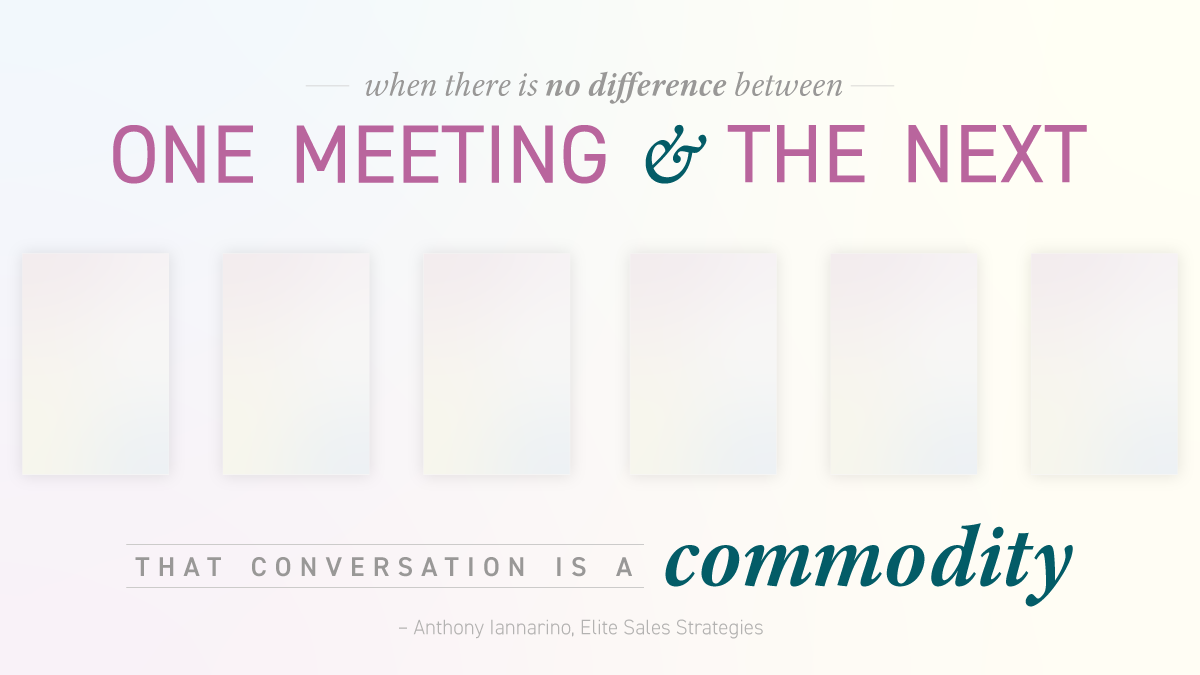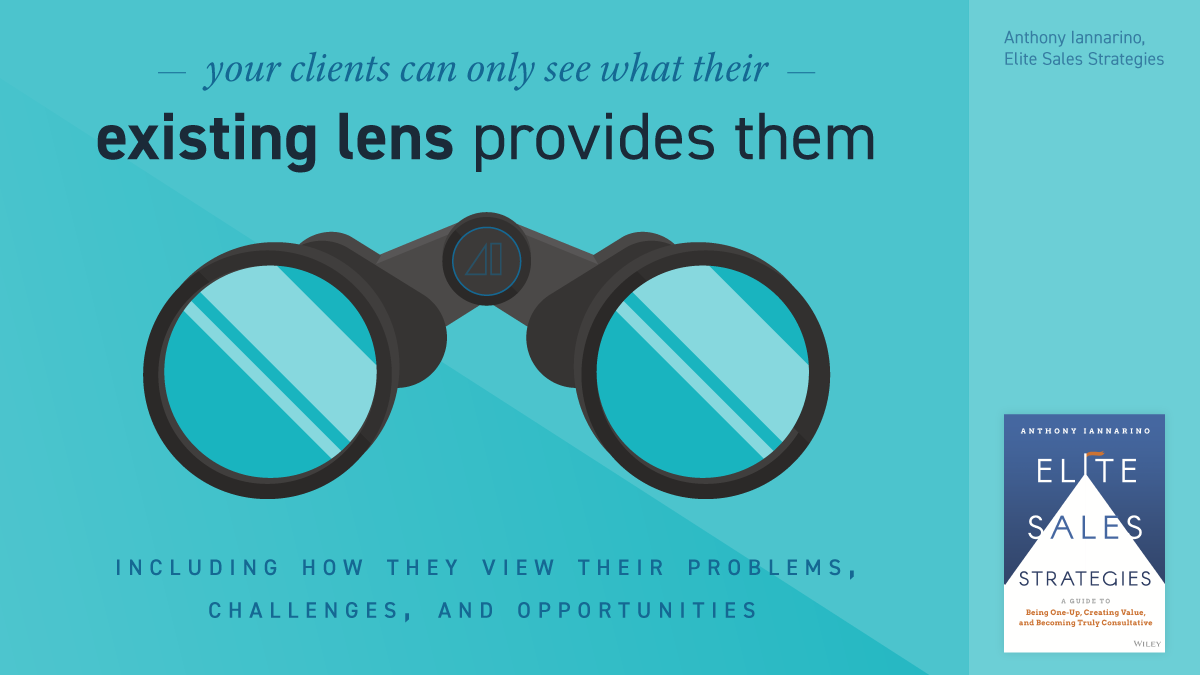There is a lot of talk about differentiation in sales, and almost every sales organization pursues sales in the same way, often having the exact same order to ensure there is no meaningful differentiation. The marketing folks will tell you to differentiate by sharing how your company is different, and the product folks will insist you differentiate your "solution"—a word that inflates your product or service by making it the answer to your client's problem.
If all of this seems familiar to you, it's because this is the way things have been done for decades. The fact that every salesperson follows the same structure has resulted in the complete and total commoditization of the discovery call, the one where you ask a client to tell you about their problem so you can excitedly explain how what you sell is the solution. While data from the insight groups suggest that people don't want to talk to a salesperson because they are pushing their agenda, another factor might be that they are bored with the same old conversation and the same advice (buy my solution from me and my company because we are the best).
The Limits of Differentiating on Your Solution
Some of this might sting a bit. You have a great product or service, the greatest the world has ever seen. It produces better results than any other product or service provided by any other company because you do a thing or two differently from your competitors. Unfortunately, you have two problems in trying to differentiate on your solution. First, your competitor makes the very same claim about their product or solution. Second, your competitor's "solution" is also capable of improving their results.
I am positive that your solution is the very best available, and that no one should accept no alternatives. But I am also positive that your competitor's solution is the very best available, and that no one should ever accept anything less. This is not to suggest that "fit" isn't a factor, but rather, you sound quite a bit like your competitor, and they, a lot like you.
Why Do We Differentiate?
There is only one reason to differentiate in sales, and that is to create a preference to buy from you and your company. I am uncertain how so many smart people decided the best way to differentiate is to have the same conversation, in the same order, with all salespeople explaining how and why their solution is the very best.
What if your prospective client believes you and the two other salespeople they've met with are all telling the truth about their solution being the best? As everything has been commoditized or is on its way to becoming so, you can see how your prospect might believe all three companies can improve their results. What if you are the variable and not your company or your solution? Where now do you turn to find an advantage, one that will tip the balance towards you, allowing you to win their business?

Differentiation In the Sales Conversation
There is a way to differentiate outside of your company and your product, even though your company has done its best to make you drink the Kool-Aid by training you on products at every sales kickoff meeting you have ever attended. You may have noticed your company doesn't spend a lot of time teaching you how to differentiate your approach from your competitor's approach.
There will be people who complain about what comes next, and you are going to have to decide for yourself if you believe it to be true: "The salesperson who creates the greatest value for the client inside the sales conversation is the one most likely to win their business." The question that follows is also in direct conflict with the way everyone sells: "How do you create value for your prospective clients?"
I'm not sure anyone feels that they gained a lot by receiving a history lesson about your company. Nor do they learn much by being asked about a problem they know they have. Once you start to talk about your "solution," you can be sure you are pitching—even if you are not pitching.
The One-Up Strategy to Create a Preference
It's important to recognize that the client is trying to improve their results. The traditional approach treats the sales conversation as a transaction, as there is nothing consultative about the approach. You might not believe your approach is transactional but repeating the same pattern in every call indicates otherwise.
To create a greater level of value and differentiate yourself, you might start by asking yourself what you believe the client doesn't know, that if known, would help them improve their results. You might also use an approach that allows you to remove and replace any outdated assumptions they believe to be valuable. This is being One-Up.

It's important to recognize your opportunity is your client's change initiative. Because your prospective client is trying to decide how best to go about pursuing the outcomes they need, you might help them understand what they need to know about the different ways different companies address the client's challenges and why, including the trade-offs they will have to make based on their model. Your contacts will certainly benefit from you teaching them to recognize the conversations they will need to have and the factors they need to consider and how best to weigh them.
There is no better way to recognize the difference and the ability to create value than to pretend you don't have something to sell. By believing and behaving as if you have no solution, the only thing you can offer is your counsel, your advice, and your recommendations. By creating greater value, you are almost certain to win the client's business, especially when no one else provided any real value.












Comments